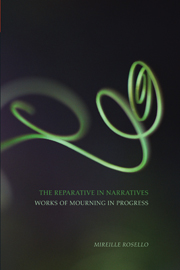Book contents
- Frontmatter
- Contents
- Acknowledgements
- Introduction: From the Debate on ‘Repentance’ to the Reparative in Memorial Narratives
- 1 Algerian Humour: ‘Jay Translating’ Words and Silences
- 2 René-Nicolas Ehni: Matricide and Deicide as Figures of Unforgivable Violence and Redemption during the Algerian War of Independence
- 3 The Truth of False Testimonies: False Brothers in Michael Haneke's Caché
- 4 Gisèle Halimi's Autobiographical and Legal Narratives: Doing to Trees what They Did to Me
- Conclusion: Repentance and Detective Fiction: Legal Powerlessness and the Power of Narratives
- Notes
- Bibliography
- Index
3 - The Truth of False Testimonies: False Brothers in Michael Haneke's Caché
- Frontmatter
- Contents
- Acknowledgements
- Introduction: From the Debate on ‘Repentance’ to the Reparative in Memorial Narratives
- 1 Algerian Humour: ‘Jay Translating’ Words and Silences
- 2 René-Nicolas Ehni: Matricide and Deicide as Figures of Unforgivable Violence and Redemption during the Algerian War of Independence
- 3 The Truth of False Testimonies: False Brothers in Michael Haneke's Caché
- 4 Gisèle Halimi's Autobiographical and Legal Narratives: Doing to Trees what They Did to Me
- Conclusion: Repentance and Detective Fiction: Legal Powerlessness and the Power of Narratives
- Notes
- Bibliography
- Index
Summary
This study of Michael Haneke's Caché tests some of the hypotheses formulated in the introduction about the different ways of instrumentalizing history. Is it possible to detect connections between moments of historiographical revision and the emergence of desirable ethical or political occurrences? Is the space between fictional historical rewritings and historical progress not always the site of an ethical dispute? Even if we decide to refuse, as paranoid, a definition of history as that which always sides with the powerful and the dominant, with the masculine or even the West, it would certainly be naive to assume that when discursive pressures change official history, the new narrative necessarily constitutes some sort of universal or universally accepted improvement. If historiography can make readers aware of history's canonical limitations and can successfully relay voices that were previously excluded from our textbooks, it is obviously capable of doing exactly the opposite. Counting on a natural historical progress of history would be a nonparanoid but definitely irresponsible form of trust and innocence. Instead, this chapter asks which reading strategies could help us look at moments of historical rewritings from a perspective that would be neither paranoid (each successive revision is a different type of exclusionary process) nor angelic (each revision corrects the past and finally does justice to the victims).
- Type
- Chapter
- Information
- The Reparative in NarrativesWorks of Mourning in Progress, pp. 101 - 140Publisher: Liverpool University PressPrint publication year: 2010



